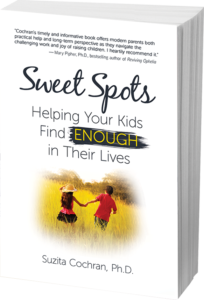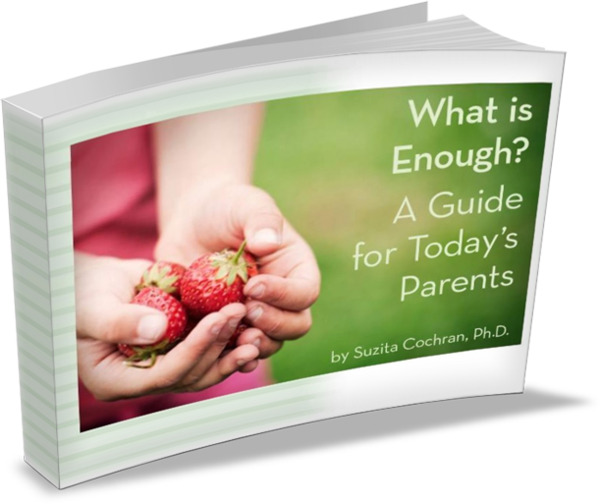 When I was working, certain things were easier – to explain at least. When I received a paycheck, the amount I brought to our family financially was right there in black and white. I don’t mean to imply that all things were easier when I was working. You see I am not a skilled multi-tasker. I’m not even an unskilled one.
When I was working, certain things were easier – to explain at least. When I received a paycheck, the amount I brought to our family financially was right there in black and white. I don’t mean to imply that all things were easier when I was working. You see I am not a skilled multi-tasker. I’m not even an unskilled one.
I recently heard about a study which found that only a tiny proportion of people, something like 4-6%, are true multi-taskers. This small minority actually improved on the task at hand while doing something else simultaneously. To me these people are like superheroes, or at least similar to the bionic mentors of 1970’s TV.
However, this same research also found another group, much larger than the first. These folks believe themselves to be competent, even skilled multi-taskers, when in fact their true multi-tasking abilities are nowhere near this level. But hey, we all use a little self-deception now and again to get us through. I’m not one to judge, I’m just repeating the research findings.
Finally there is the group to which I belong, the uni-taskers. We know our performance doesn’t improve as more is added to our plates. And frankly we don’t even pretend to enjoy keeping track of many tasks at once. (Actually this third group was not mentioned in the study I heard about, but being a part of it myself, I felt I couldn’t leave it out.)
Once I became a parent my multi-tasking disability made my job outside the home much less rewarding. This is the positive aspect of my not working for income right now. I’m content to have far fewer daily items on my list. But the focus of this post is actually on the opposite side of this coin.
Now that I’m no longer drawing a paycheck, it’s much harder to see what I’m contributing to our family financially. And in these challenging economic times I want to help ease the financial burden for our family of five. I feel like I’m helping out, but whenever someone asks me how, I don’t have a clear answer.
As I’ve thought more about this I realize part of the reason is that what I “do” for our family now is more invisible than when I worked, and it’s difficult to describe what you can’t see. Daniel Pink writes about looking for the “negative spaces” within the big picture. “Peer past what’s prominent and examine what’s between, beyond, and around it.” He says when we become aware of these negative spaces, the positive spaces will “snap into clearer focus.”
Along these lines, one of the main ways I currently support our family financially is by creating situations where we don’t spend money. For example, when my sons wanted to learn more soccer skills than Todd or I could teach them, I arranged to babysit the daughter of our semi-professional soccer player neighbor in exchange for some private soccer lessons. But looking back on this situation, it’s consistently difficult for me to conjure up that negative space–in this case the money we didn’t spend on soccer camp.
Another invisible boost I give to our family is in the area of gift giving. In the past few years we’ve had a larger than usual number of weddings, anniversaries, births, and big birthdays (those ending in zeroes) for which we’ve wanted to give gifts. Because I’ve been painting a lot recently, I’ve created most of these presents. But again, it’s hard to respond to the question of what I bring in financially when the answer is, “The work I put in allows us not to spend money.” This response isn’t easily converted to an exact dollar amount.
When I consider the areas our family would spend money on anyway, such as buying clothing or athletic equipment (bikes, balls, cleats) for our kids, this leads me to additional negative spaces in which I work. I’ve utilized the ever-helpful parent network to find sports or even pet care items with which others are finished. (And of course there are a number of families to whom we give the usable items we’ve outgrown.) Finally, I have one incredibly generous friend who hands down nearly all her daughter’s gently worn clothes to Annie.
Much of the rest of what my kids need I buy during our three-month yard sale season. Some people adore “yard-saling.” For me it’s more like work than a fun diversion, but I continue this undertaking because it meets so many of our family’s material needs. (And I appreciate being able to recycle and reuse resources too.)
But again when someone asks, “What do you bring to your family financially?” or more realistically when I ask myself this question, I’m still initially speechless. It would be enlightening to quantify in dollars every needed thing one attained without buying. And wouldn’t this number technically be the same as what one earned?
So, I guess I could take a stab at tallying the prices of all I haven’t bought. But with the effort I’m already putting into this invisible family savings plan, this extra job would come a little too close to multi-tasking for this uni-tasker.
What are the invisible family economics at your house? Leave a comment below!


 Sweet Spots: Helping Your Kids Find ENOUGH in Their Lives.
Sweet Spots: Helping Your Kids Find ENOUGH in Their Lives.


We also do a lot of yardsaling, which definitely helps us keep from spending on kid clothing. I make bread, which I guess gives us bread at a discount, since we still need to buy all the ingredients. I grow a lot of our flowers from seed, but flowers are rather a luxury. And though I try to grow vegetables, I feel we’re dangerously near the category of the $500 tomato. But you’re right, the actions that save money are hard to quantify, unless you begin with a very strict household budget for every category (e.g., gifts, clothes, lessons), and then can see what you AREN’T spending or how long you can make it last. And that seems like a lot of work!
Do you have any sorts of records of your spending from when you worked such as credit card bills or checking account statements? Prices and tastes and needs have probably all changed a bit since then, but they may let you make a direct comparison. Obvious examples are childcare and gas. You may also spend different amounts for things like lunches and clothing (professional clothing usually costs more).
Things I spend time on that save me money include cooking, making other things from more basic ingredients (such as chocolate syrup, laundry detergent), keeping things neat so I can find them (and don’t have to re-buy them), and mending to make clothes last longer. Even more invisible is the time spent reading which sometimes leads to learning cheaper ways to do things. Even just thinking about things can save money such as when I realized that one (double) graham cracker is as satisfying a snack for me as 1/2 of a pop tart (and costs only half as much) and when I figured out the minimum number of pretzels that can make a satisfying snack (if I take more I will eat them all anyway).
Such great food for thought, thank you! I especially liked your point about how simply reading can save money in the long run. And I agree that keeping things neat and organized is also an invisible way to save.
You are also giving your children a great financial education/example. This reminds me of the whole premise of the book Your Money or Your Life where the author points out that your expenses can be counted as hours of your life that you worked to get the money to buy what you want or need. Ultimately if you can teach them to be more financially independent in the future, that is more useful than bringing in extra cash now. This is to say nothing of your closer relationships or smaller environmental footprint.
As it has been for so many others the book, Your Money Or Your Life, was a life-changer for me. I haven’t read it for a while, but your comment makes me want to re-read it and think about how to impart some of its messages to kids. Thanks for your comment!
Money can be such a powerful thing. I often feel like I contribute less because my contributions are so easily measured in dollars. But then I try to look at it in reverse… what do we spend less on because I am home rather than at work. Child care for a start. And food is another biggy… if I was working even part time our food bill would have to increase as I simply wouldn’t be here to make bread or other meals from scratch.
I also try to look past the dollars and sense to what we truly value as a family… and one of those things is having someone be at home with our children while they are young.